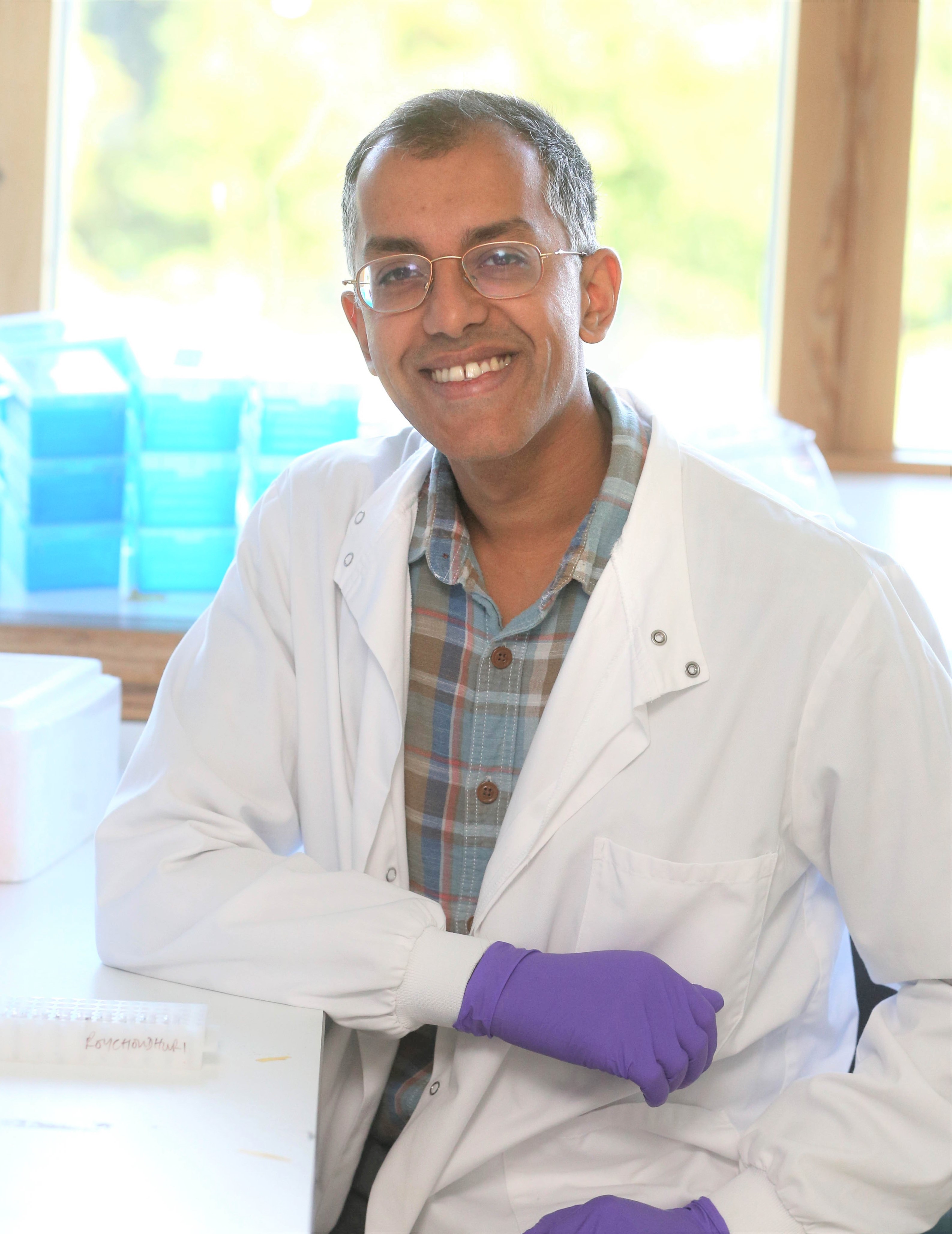
Professor Rahul Roychoudhuri
Position: Group Leader
Personal home page:
http://roychoudhurilab.org
Email:
fbc@cancer.cam.ac.uk
PubMed journal articles - click here
Professor Rahul Roychoudhuri is pleased to consider applications from prospective PhD students.
The adaptive immune system employs a variety of suppressive mechanisms, collectively referred to as immunoregulatory mechanisms, to restrain excessive immune activation that would otherwise result in autoimmunity and allergy. While tolerance mechanisms therefore play a beneficial role in preventing inflammation, they can also powerfully suppress immune responses during chronic infections and cancer in a process referred to as immunosuppression. T cells play a critical role coordinating immune function and whereas effector T cells drive immune activation and can drive rejection of cancer, their function is suppressed both by intrinsic inhibitory factors, components of the tumour microenvironment and specialised suppressive cells within the immune system, including CD4+ regulatory T cells. Effector and regulatory T cells arise from common precursors and yet establish dichotomous function. We are interested in how transcription factors drive acquisition of the dichotomous functional characteristics of effector and regulatory T cells and how this activity is affected during cancer. We have identified new molecular mechanisms that underpin tumour immunosuppression providing targets for development of new therapies aimed at reversing dysfunctional immune responses in cancer.
Symplectic Elements feed provided by Research Information, University of Cambridge
Ionic immune suppression within the tumour microenvironment limits T cell effector function. Eil R, Vodnala SK, Clever D, Klebanoff CA, Sukumar M, Pan JH, Palmer DC, Gros A, Yamamoto TN, Patel SJ, Guittard GC, Yu Z, Carbonaro V, Okkenhaug K, Schrump DS, Linehan WM, Roychoudhuri R, Restifo NP. Nature. 2016 Sep 22;537(7621):539-543
Oxygen Sensing by T Cells Establishes an Immunologically Tolerant Metastatic Niche. Clever D, Roychoudhuri R, Constantinides MG, Askenase MH, Sukumar M, Klebanoff CA, Eil RL, Hickman HD, Yu Z, Pan JH, Palmer DC, Phan AT, Goulding J, Gattinoni L, Goldrath AW, Belkaid Y, Restifo NP. Cell. 2016 Aug 25;166(5):1117-1131.e14.
BACH transcription factors in innate and adaptive immunity. Igarashi K, Kurosaki T, Roychoudhuri R. Nat Rev Immunol. 2017 Jul;17(7):437-450.
The transcription factor BACH2 promotes tumor immunosuppression. Roychoudhuri R, Eil RL, Clever D, Klebanoff CA, Sukumar M, Grant F, Yu Z, Mehta G, Liu H, Jin P, Ji Y, Palmer DC, Pan JH, Chichura A, Crompton JG, Patel SJ, Stroncek D, Wang E, Marincola FM, Okkenhaug K, Gattinoni L, Restifo NP. J Clin Invest. 2016 doi: 10.1172/JCI82884.
BACH2 regulates CD8(+) T cell differentiation by controlling access of AP-1 factors to enhancers. Roychoudhuri R, Clever D, Li P, Wakabayashi Y, Quinn KM, Klebanoff CA, Ji Y, Sukumar M, Eil RL, Yu Z, Spolski R, Palmer DC, Pan JH, Patel SJ, Macallan DC, Fabozzi G, Shih HY, Kanno Y, Muto A, Zhu J, Gattinoni L, O'Shea JJ, Okkenhaug K, Igarashi K, Leonard WJ, Restifo NP. Nat Immunol. 2016 Jul;17(7):851-860.















